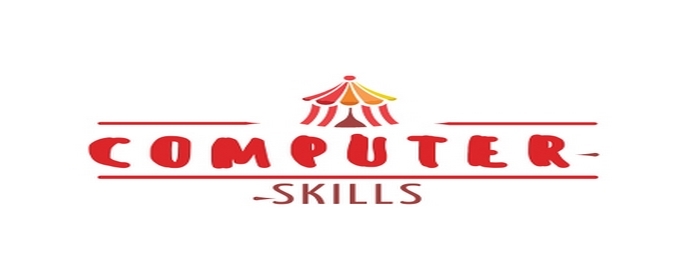Business growth with effective CRM software
In today's competitive market, effective CRM (Customer Relationship Management) software stands as a cornerstone for fostering strong customer relationships and steering business growth. With capabilities that go beyond mere contact management, CRM software equips businesses with the tools to track and analyze customer interactions and data across various channels, including emails, phone calls, and social media platforms like Salesforce and HubSpot.
Choosing the right CRM system, such as Zoho or Copper, is crucial for businesses aiming to improve sales productivity, streamline processes, and enhance customer service efficiency. This article delves into the key features to consider, the top benefits of integrating CRM software into your operations, the challenges small businesses face without it, and how to select the best CRM solution tailored to your business needs.
Key Features to Look for in Customer Management Software
When selecting CRM software, it's vital to focus on features that align with your business's specific needs. Here's a breakdown of essential functionalities:
1- Contact Management:
Central to any CRM, this feature should offer comprehensive tools to store and manage customer information, including demographics, social media profiles, and interaction history. It ensures that customer data is easily accessible across departments.
2- Automation and Workflow Management:
- Automated Workflows: Streamline operations by automating routine tasks, such as assigning leads to sales reps and sending follow-up emails.
- Marketing Automation: Enhance target marketing efforts with tools for personalized messaging, lead tracking, and campaign ROI analysis.
- Task Automation: Simplify task assignments and follow-ups, leveraging data on employee skills and workload for efficient distribution.
3- Customization and Integration:
- Customization Options: Tailor the CRM to your business needs, from dashboard elements to custom reports and API integrations for added functionality.
- Third-party Integrations: Ensure seamless operation with essential business tools like email, POS systems, and accounting software, enhancing overall efficiency.
4- Analytics and Reporting:
- CRM Analytics: Gain insights into customer behavior and segmentation, supporting informed decision-making.
- Sales Forecasting: Utilize data from your sales pipeline for accurate forecasting, helping anticipate market changes.
Remember, the right CRM software not only offers a centralized database for managing customer information but also supports your sales and marketing efforts through automation, customization, and insightful analytics.
Top Benefits of Implementing Customer Management Software
Implementing effective CRM software offers a multitude of benefits that can significantly impact a business's growth and efficiency. Key advantages include:
- Streamlined Operations: By automating sales processes, marketing campaigns, and business analytics, CRM software frees up valuable time for strategic planning and customer engagement. This automation also plays a crucial role in preventing employee burnout, thanks to the elimination of mundane tasks and the provision of accurate, timely data which fosters a collaborative work environment.
- Enhanced Customer Relations: CRM systems are pivotal in managing and improving business-customer relationships. They enable businesses to offer better customer service by efficiently managing contacts, understanding user behavior through detailed analytics, and providing proactive service. This, in turn, leads to increased sales and improved customer retention by facilitating a seamless customer experience and defining successful sales processes.
- Data-Driven Insights: With built-in analytic capabilities, CRM software provides businesses with detailed analytics that help in understanding buyer patterns and behaviors. This leads to improved customer segmentation and more accurate sales forecasting, allowing businesses to strategically plan for the future with actionable insights and easily understood metrics.
Challenges Small Businesses Face Without Customer Management Software
Small businesses without effective CRM software encounter a range of operational hurdles that can impede growth and efficiency. Key challenges include:
Data Management and Quality:
- Difficulty in tracking leads and following up with potential customers.
- Managing customer data manually can lead to inefficiencies, lost revenue, and data quality issues due to errors in manual data entry.
- Limited access to real-time data can hinder decision-making processes, making it difficult to track customer interactions accurately.
Operational Inefficiencies:
- Manual tasks such as data entry and updates consume valuable time and resources.
- Inconsistent sales processes lead to unpredictable results, with salespeople spending significant time on routine tasks.
- Measuring team performance becomes challenging, affecting visibility into team effectiveness and customer service quality.
Customer Relationship Challenges:
- Poor communication and lack of a system to track customer interactions and touchpoints can lead to subpar customer service.
- High customer churn rates may result from dissatisfied customer experiences, with bad service reaching more ears than praises for good service.
- Businesses risk losing customers to competitors, damaging brand reputation, and ultimately struggling to grow, as evidenced by the high failure rates of small businesses within the first few years.
These challenges underscore the critical role of CRM software in streamlining operations, enhancing customer relationships, and supporting business growth.
Choosing the Right Customer Management Software for Your Small Business
Choosing the right Customer Management Software (CRM) for your small business involves a series of steps that require careful consideration and strategic planning. Here’s a streamlined approach to making an informed decision:
1- Assessment and Planning:
- Identify Business Needs: List down the specific challenges your business faces that CRM can solve.
- Understand Business Goals: What do you aim to achieve with CRM? Increased sales, better customer service, or more efficient operations?
- Gather Input: Involve various teams (sales, marketing, customer service) to understand their needs and expectations from a CRM.
2- Research and Comparison:
- CRM System Type: Decide between on-premise and cloud-based solutions based on your budget and technical infrastructure.
- Vendor Expertise: Check if the CRM provider has experience in your industry and offers a mobile app for on-the-go access.
- Features vs. Functionality: Ensure the CRM addresses your business needs with the right set of features. For instance, GDPR-compliance for businesses in Europe.
- Technical Compatibility: The CRM should integrate seamlessly with your existing software tools.
3- Budgeting and Final Selection:
- Define Your Budget: Have a clear understanding of your financial constraints to avoid overspending.
- Free CRM Solutions: For businesses with tight budgets, explore free CRM options that offer basic functionalities.
- Expert Advice: If necessary, seek advice from CRM consultants or other businesses in your industry.
- Customer Support: Evaluate the level of customer support provided by the vendor, as this will be crucial during the implementation phase and beyond.
By following these steps, small businesses can select a CRM system that not only fits their budget but also aligns with their operational needs and long-term objectives.


Post a Comment